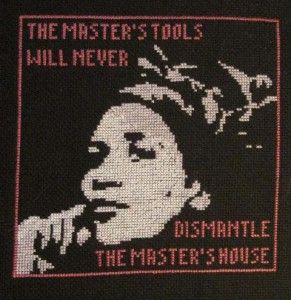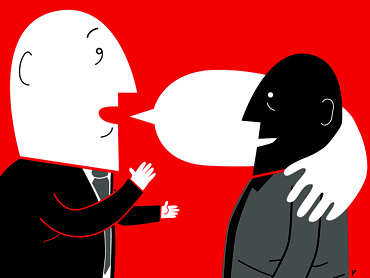Recently I’ve been marinating on the idea of “priority learners”. Over the last few years the term has been popping up in NZ education lingo.
 From what I’ve read, priority learners are Māori, Pasifika, those from materially poor households/communities and ‘disabled’ young people (Education Review Office, 2012).
From what I’ve read, priority learners are Māori, Pasifika, those from materially poor households/communities and ‘disabled’ young people (Education Review Office, 2012).
The aim of focussing on these young people is to ensure that they are not underserved by the education system. Moreover, that they can make a economic and social contribution when they’re adults (Prime Minister John Key, 2012).
I think the whole notion of a “priority learner” is kind of odd, and a little misguided. In NZ we seem to have a knack on focusing on “people with the problems”. This is commendable – we need to look at who isn’t doing well. But I reckon it misses a deeper, and more nuanced appreciation of the problem. I think we need to critically look at why and how people ended up with the “problems” in the first place.
I’ve ironically started to call myself a “Pākehā Priority Learner” (PPL). Why? Because it seems weird and unfair to continue to label young people and families who have been excluded from the system for generations, without taking a serious look in the mirror at how the system came about, and who is benefiting from it. I think these people need a break!
In my experience, people who have been ignored or excluded by a system know and feel a lot. Experiences of exclusion and not being taken seriously or valued creates an awareness about how things are unfair.
I’m always amazed at how many people who have been treated so badly by a system continue to work so hard to change it, and make it more humane. In my experience their generosity of spirit is amazing. At the same time they can feel jaded, and get sick and tired of saying and doing things to promote change, because no one listens. So, it’s not surprising that sometimes they become disconnected, disinterested and angry at the status quo. An obvious example is the declining Māori voter turn-out during the 2014 elections.
I think it’s refreshing to turn the gaze of the mirror on the people who dish out the labels: as a Pākehā educational research and evaluator, I am one of those ‘people’. I’m going to label myself. I give consent to being boxed in – I am a Priority Learner! Let me join the litany of tick-box identities; I want my people to be analysed and put under the microscope!
As a Pākehā Priority Learner, I have a lot to learn. It’s exciting because the learning never ends! Just to start things off, here’s what fellow PPLs can learn, if we’re brave enough:
- We can increase our understanding about the cultural assumptions behind our education system: why it serves some people and not others. This is a big job, so we need big brains and hearts.
- An even bigger, and more exciting thing PPLs can do is to find personal, professional and systematic ways to work with people whom the system excludes, in order to make things less crappy and more awesome.
 Changing a complex system with rules, regulations and assessments to make it more humane isn’t easy. It’s long-term and edgy work. But it’s worthy and important work, which has been going on for ages. That’s why, as a self-confessed Pākehā Priority Learner, I think it’s important to create a “community of practice” with anybody who’s passionate about improving our learning approaches now and into the future.
Changing a complex system with rules, regulations and assessments to make it more humane isn’t easy. It’s long-term and edgy work. But it’s worthy and important work, which has been going on for ages. That’s why, as a self-confessed Pākehā Priority Learner, I think it’s important to create a “community of practice” with anybody who’s passionate about improving our learning approaches now and into the future.
I want our learning places to be more creative, humane, compassionate and critical. PPLs can learn more about how to avoid making the same mistakes as our ancestors, and work with everyone to make our learning systems more dynamic.
Being a Pākehā Priority Learner is a type of “hard fun”: it poses intellectual and emotional challenges along the way. In a world with big challenges – increasing material poverty, a rapidly changing climate – in the end, we’re all learners, right?

Here’s the origins of the term “hard fun”, or at least how it came into the NZCER lexicon 🙂 http://www.cifs.dk/scripts/artikel.asp?lng=2&id=1385
LikeLiked by 1 person
This is a fantastically written post, Alex. I want to be a PPL as well!!
LikeLiked by 1 person
Kia ora e hoa
Firstly your blog was highly recommended and I must say I agree – love the concept of PUHA & PAKEHA and just listened to the waiata on You Tube. Keep up the awesome work!!!! Will now recommend this to my friends…nga mihi
LikeLike
Reblogged this on lapetitekiwi and commented:
I really loved the full consciousness with which this post was written. Awesome!
LikeLike